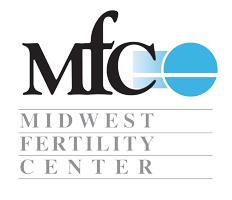Pregnancy is an incredible journey, but it comes with its fair share of challenges. One common discomfort many expectant mothers experience is acid reflux, a condition marked by a burning sensation in the chest (heartburn) and regurgitation of stomach acid into the esophagus. Hormonal changes and the growing uterus pressing against the stomach are key contributors to this issue during pregnancy. Fortunately, there are effective ways to manage acid reflux and find relief.
Understanding the Causes
Pregnancy hormones, particularly progesterone, play a significant role in relaxing the lower esophageal sphincter (LES), the muscle that prevents stomach acid from moving upward. This relaxation, combined with the physical pressure of the uterus on the stomach, can lead to acid reflux.
Practical Tips for Relief
1. Adjust Your Eating Habits
– Eat smaller, more frequent meals to prevent overloading your stomach.
– Avoid eating right before bedtime. Aim for a gap of at least two to three hours.
– Chew your food thoroughly to aid digestion and reduce pressure on the LES.
2. Monitor Your Diet
– Limit or avoid foods that trigger reflux, such as spicy, fried, or fatty dishes.
– Steer clear of caffeine, chocolate, and citrus fruits, which can exacerbate symptoms.
– Incorporate alkaline foods like bananas, melons, and oatmeal to help neutralize stomach acid.
3. Elevate Your Upper Body
– Use extra pillows or a wedge-shaped cushion to keep your upper body slightly elevated while sleeping. This position helps keep stomach acid where it belongs.
4. Wear Comfortable Clothing
– Avoid tight-fitting clothes that put additional pressure on your abdomen. Opt for loose and comfortable maternity wear.
5. Stay Hydrated
– Drink plenty of water throughout the day but avoid drinking large amounts during meals to prevent overfilling your stomach.
6. Consider Natural Remedies
– Ginger, in small amounts, can help with digestion and reduce heartburn. Try ginger tea or include fresh ginger in your meals.
– A teaspoon of honey in warm water may provide temporary relief from symptoms.
Medical Interventions
If lifestyle changes are not enough, consult your healthcare provider https://mfcfamily.com/. They may recommend antacids that are safe during pregnancy or other medications to manage symptoms. Always follow your doctor’s advice and avoid over-the-counter remedies without consultation.
When to Seek Help
While occasional acid reflux is common during pregnancy, persistent or severe symptoms should not be ignored. Severe heartburn, difficulty swallowing, or vomiting blood could indicate a more serious condition and warrant immediate medical attention.
Acid reflux can be a frustrating part of pregnancy, but with mindful adjustments to your diet, lifestyle, and sleeping habits, you can minimize its impact. Remember to prioritize your comfort and consult with your healthcare provider https://mfcfamily.com/ for personalized advice. Embracing these strategies will help you focus on the joys of pregnancy while keeping discomfort at bay.

